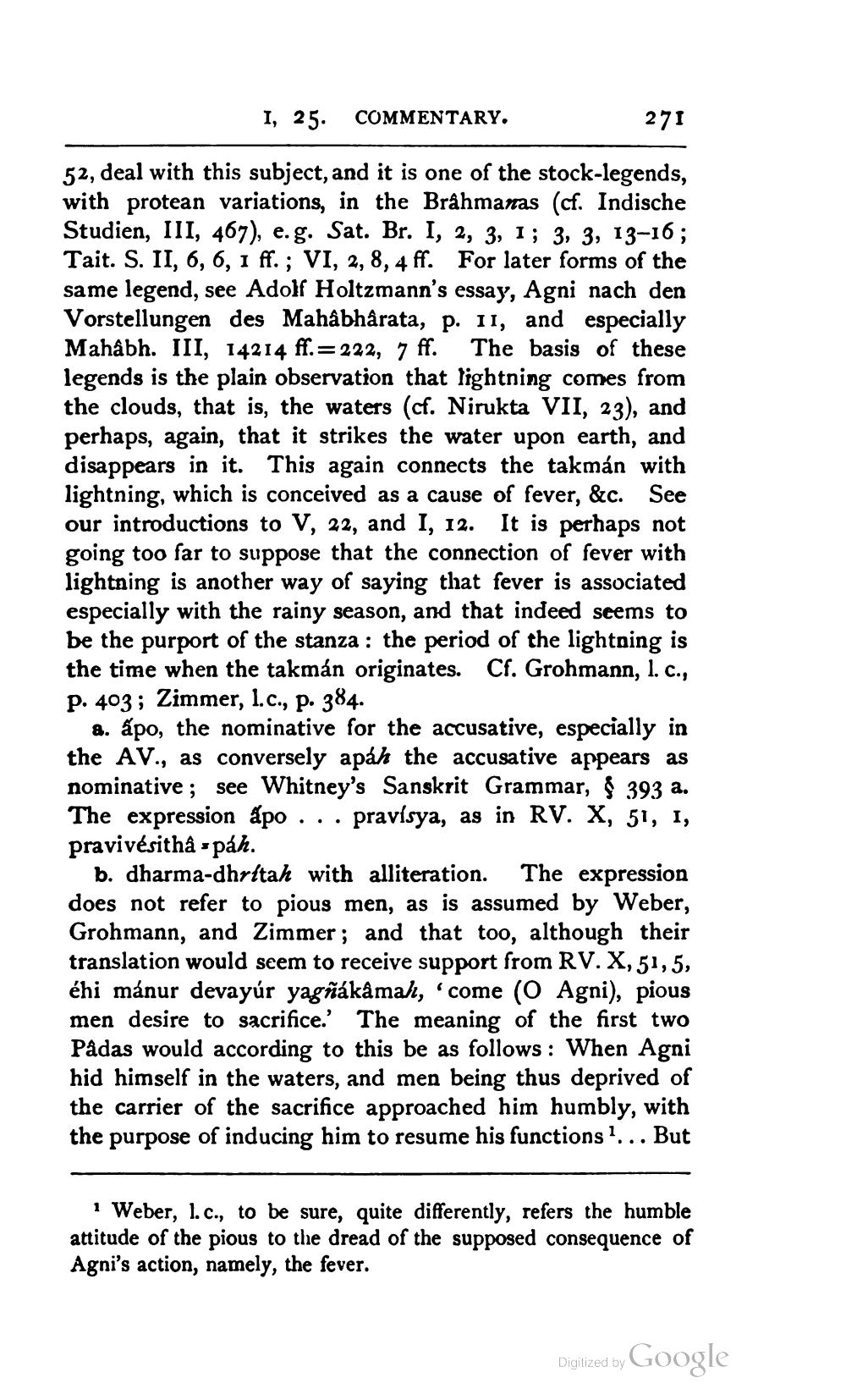________________
I, 25.
COMMENTARY.
271
52, deal with this subject, and it is one of the stock-legends, with protean variations, in the Brahmanas (cf. Indische Studien, III, 467), e. g. Sat. Br. I, 2, 3, 1; 3, 3, 13-16; Tait. S. II, 6, 6, 1 ff.; VI, 2, 8, 4 ff. For later forms of the same legend, see Adolf Holtzmann's essay, Agni nach den Vorstellungen des Mahâbhârata, p. 11, and especially Mahâbh. III, 14214 ff.=222, 7 ff. The basis of these legends is the plain observation that lightning comes from the clouds, that is, the waters (cf. Nirukta VII, 23), and perhaps, again, that it strikes the water upon earth, and disappears in it. This again connects the takmán with lightning, which is conceived as a cause of fever, &c. See our introductions to V, 22, and I, 12. It is perhaps not going too far to suppose that the connection of fever with lightning is another way of saying that fever is associated especially with the rainy season, and that indeed seems to be the purport of the stanza: the period of the lightning is the time when the takmán originates. Cf. Grohmann, l. c., P. 403; Zimmer, 1.c., p. 384.
a. apo, the nominative for the accusative, especially in the AV., as conversely apáh the accusative appears as nominative; see Whitney's Sanskrit Grammar, § 393 a. The expression apo . . . pravísya, as in RV. X, 51, 1, pravivésithâ -páh.
b. dharma-dhritah with alliteration. The expression does not refer to pious men, as is assumed by Weber, Grohmann, and Zimmer; and that too, although their translation would seem to receive support from RV. X, 51, 5, éhi mánur devayúr yagñákâmah, 'come (O Agni), pious men desire to sacrifice.' The meaning of the first two Pâdas would according to this be as follows: When Agni hid himself in the waters, and men being thus deprived of the carrier of the sacrifice approached him humbly, with the purpose of inducing him to resume his functions1... But
1 Weber, l. c., to be sure, quite differently, refers the humble attitude of the pious to the dread of the supposed consequence of Agni's action, namely, the fever.
Digitized by
Google




